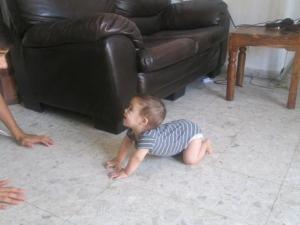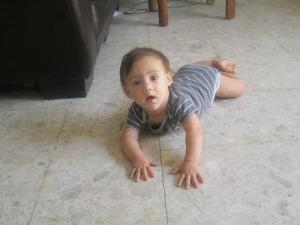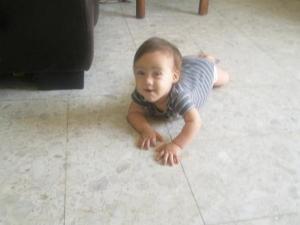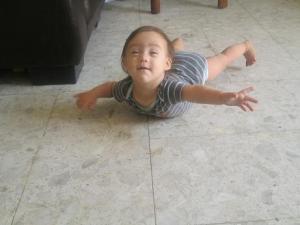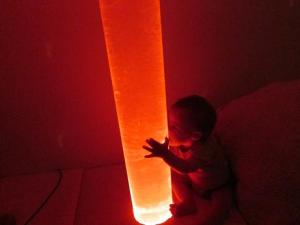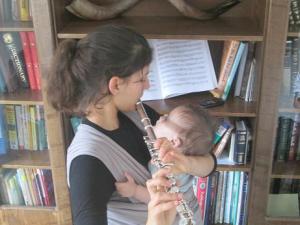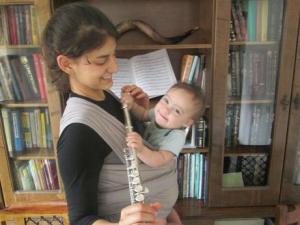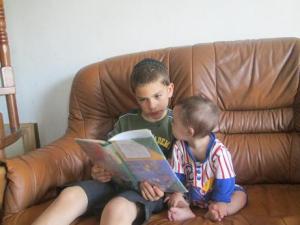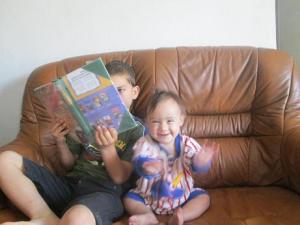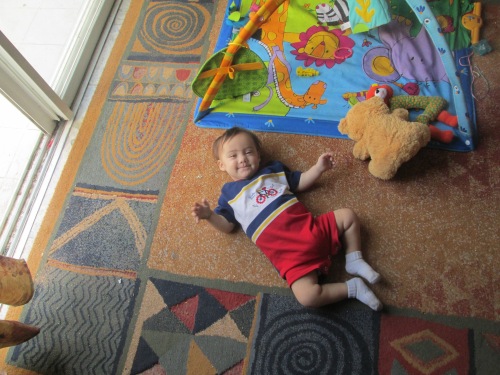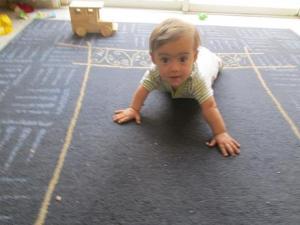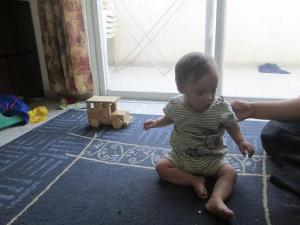Yesterday I saw a post on a Jewish women’s board that a healthy baby boy with T21 was available for fostering. I said if he was in Israel we would be willing to take him, but it turned out that he’s in Brooklyn, NY so another lucky family will get the privilege of raising him.
I wish people were given accurate information and support after the birth of a child with T21; it would make such a huge difference in the decisions that are made about their futures before they’ve hardly made it into the world. I understand people being afraid of the unknown and overwhelmed at what they think is going to be involved in raising a child with T21. Feelings aren’t facts and fear is a very powerful motivator. Unfortunately the difficulties in raising a child with Down syndrome is in most cases dramatically overstated. I’m not going to blithely tell you that there are no challenges – but every biological and foster parent I’ve spoken to with a child with T21 has said the reality was much better than they had been led to believe.
My anguish over the post that I read wasn’t over the need for a foster family. Sometimes people are overwhelmed and don’t have the resources to meet a child’s needs. What made me really sad were the comments following the post with the request for a foster family. This was a board of religious Jewish women, and the overwhelming sentiment I came away with was that giving your child up because of a disability like this is understandable. What difficulties do they think are involved in raising a child with Down syndrome?

In this case, the baby was healthy. In about half the babies born, there are heart problems. Ten percent of babies have transient leukemia (Yirmiyahu was one of these), which means there are highly elevated white blood cells at birth and is treated with antibiotics. Fortunately, we live in a time in which heart problems like these are able to be taken care of surgically. Yes, it’s hard to have a child who undergoes surgery or needs to be taken regularly to medical specialists. Many babies who don’t have Down syndrome have medical issues that include needing heart surgery- but I don’t see parents being advised to give them up for other families to raise.
People point to medical issues when they say that it’s so hard to raise a child with Down syndrome (I’ve seen this a LOT on a support board for those who have aborted babies with T21 – less than 10% of babies with this diagnosis get a chance at life). In my opinion, this is a straw man. It’s an acceptable reason for giving up a child though the medical issues aren’t really the problem. If they were, you’d see people commonly giving up babies with medical issues, but you don’t, even when the issues are much more serious than what children with T21 may face. Giving this reason keeps us from looking a little deeper and a little harder at our beliefs about parenting, the purpose of life and our roles as human beings in this world.
1) We’re afraid to be different. We’ve been conditioned to think that if everyone else is doing something/has something, we want to do or have something similar. We want to fit in. We want to be socially comfortable and we think that means being just like the people around us. We don’t want a child who looks or acts differently than most of the kids on the playground because of our desire to fit in. We want a child who will make us proud in ways that are typically assumed to be valuable or at least not cause people to look at us differently. As a speaker known for her depth and insight once said, there are three main factors in every decision we make: what will others say, what will others say, and what will others say.
So we have to ask ourselves: does a meaningful and impactful life comes from trying to blend in and be like everyone else? What kind of life do you want to have? A life that matters or a life of following the crowd, blocking out your inner voice and ignoring your potential to impact the world in your unique way? If we want to live a life we love, we’ve got to stop being afraid of what everyone else says and thinks. As I tell my kids, people don’t think about you nearly as much as you think – they’re too busy thinking about themselves.
2) We’re afraid to have difficulties. In our generation we expect life to be smooth and when there are bumps we feel we’ve been ‘unfaired’ against. Life really isn’t like that. Life is filled with daily difficulties, small and large. We’re meant to be challenged so that we can grow and develop our inherent potential that would remain latent if we were untested. It’s not always pleasant but it’s good. Hard and good aren’t mutually exclusive.
3) What is your role as a parent? Is it to nurture to the best of your ability the child that is born to you, to help him actualize the seed of potential inside of him? Is it to bask in the approval of others or turn him into a nachas machine? If it’s to nurture him and love him for who he is, then parenting a child with T21 is pretty much the same as raising any other child. Every child will require you to stretch yourself to find ways to meet their unique needs.
Some needs truly demand a lot more time and energy than others, and parents really need more resources than they have. However, I believe that if parents were given a more accurate picture of the reality of living with Down syndrome in addition to letting go of some limiting beliefs, we would see requests like the above seeking a home for an infant with T21 dramatically drop.
Avivah


